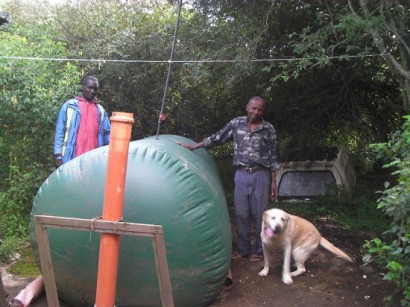
The Third National Meeting of Biogas Users took place in Pinar del Rio on February 22 and saw specialists and farmers coming together to discuss their experience in the use of the biogas.
According to local media, Pinar del Rio is one of the Cuban provinces showing the biggest progress in the use of fuel gas with 52 biodigestors currently active and a further 23 under construction. The gas generated by the plants is mostly for domestic use, says the Provincial Science and Technique Commission.
An FAO report indicated that 550 biogas plants were built in Cuba in the 1980s, all of which had a six cubic metre capacity. Most of these were located on cattle farms. However, experts at the event last week reported that biogas is now used in all the Cuban provinces to cook food in dining rooms and communities.
Indeed, Antonio Guardado, a member of Cuban entity Cubasolar, said Cuba now boasts 1,000 biogas plants, many of which are working with the collaboration of families and agricultural producers.
Experts at the event highlighted that biogas could be used to feed public lights in communities and cities or used to generate electric power. This is a profitable source of energy from the economic point of view, respectful with the environment, said Guardado, highlighting that converting waste organic materials into biogas is a convenient and safe way to dispose of otherwise problematic waste.
Indeed, it was reported last year that Cuba is planning on building 100 cutting-edge tubular biogas plants out of PVC in an effort to reduce the negative environmental impact generated by pig manure. The plants will generate fuel to meet the energy needs of rural areas, while preventing pathogenic microorganisms contained in animal wastes from contaminating the subsoil and the aquifer.
Roberto Sosa, director of the Biogas Promotion and Development Center of the Pig Research Institute told the press at the time that one of the plants will have the capacity to process the waste of up to 150 pigs and to supply gas to the producer’s house and his neighbours.
Cuba working with Vietnam
According to the official news agency ACN earlier this year, the Hanoi-based Biogas Technology Center is setting up two midsize biogas generators in Cuba. The two 300-cubic meter plants donated by Vietnam are expected to begin operating before the end of the year. They will be sufficient to provide electricity for a small community, a Cuban expert with Biomas Cuba said during an alternative-energy conference in Las Tunas last year. The ACN report didn’t say where the two generators are being built.
The Cuba Standard reveals that biogas plants helped Cuba save the equivalent of 2,000 tonnes of oil in 2010, allowing the country to sell tradable CO2 certificates worth millions of dollars per year.
Cuba has also received help from other countries, such as Germany, and with experts highlighting the potential of biogas in Cuba, foreign interest in this energy source could rise.
For additional information:


